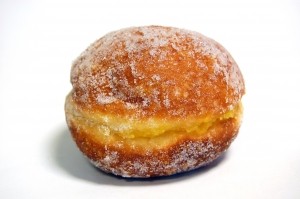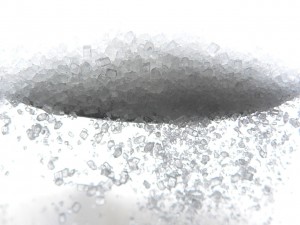Sugar
Basics of Sugar Addiction
Sugar addiction is an undesirable urge to consume sugar that can only be alleviated through eating sugar.

Causes 
Although some researchers have related an “addiction” to sugar to genetic factors, many others believe that individuals enjoy the physiological rush that consuming sugar brings. It is essential to evaluate that sucrose, or refined sugar, has only been consumed by humans in mass quantities in relatively recent history; in the past, glucose was extracted by the body from fruits, vegetables, and fats.
Risk Factors
Some medical conditions can leave an individual more likely to develop an addiction to sugar, including a weak adrenal gland. With a weak adrenal gland, glucose levels in the blood cannot be regulated by the quantity of glucocorticoid hormones released; the lack of control of levels can lead to intense sugar cravings.
Symptoms 
Symptoms of a sugar addiction are consistent with other addictions in that they consist of daily, strong urges to consume sugar. If an individual is unable to consume sugar, they may feel weak or dizzy.
“Diagnosis” + Prevention 
As a non-typical addiction, there are no standards for the “diagnosis” of a sugar addiction. However, long term effects can be detrimental to health; the American Diabetes Association associates high sugar consumption with diabetes, heart disease, cancer, and obesity. Finding suitable treatments for the disease challenge healthcare professionals. Oftentimes, nutritionists recommend reduced sugar diets, but some doctors have taken it so far as to encourage addicts to take amino acids including glutamine and tyrosine to reduce cravings.
“Sugar Addiction” from Salem Press Encyclopedia of Health, by Paradowski, Robert. 2012 (“Research Starters”)
Neural Basis of Sugar Addiction
Addiction to sugar is accredited to reinforcement in the dopamine pathway.
Is This Food Addiction?
Research has shown that the category “food addiction” fails to address how the body processes different types of substances. In addressing differences in addictive behavior in the body’s response to sugar and fat; whereas fat is likely the nutrient that causes excess bodyweight, the sweet taste of sugar (even in the absence of fat) may be responsible for producing an “addiction” to certain types of foods.
Reference: “Sugar and fat bingeing have notable differences in addictive-like behavior,” from The Journal of Nutrition,” 2009
How Do We See Sugar?
Perceptions of Sugar in America:

America’s relationship with sugar has changed dramatically throughout the last century, with the average amount consumed per person increasing dramatically.

Perceptions of sugar and cocaine:
After scientific studies indicated that rats offered both sugar and cocaine tended to prefer the sugary substances, Americans began to examine similarities between the two substances.

It is essential to evaluate the addictive properties of these substances work in entirely different ways. For more information please see our page outlining the basics of addiction.
